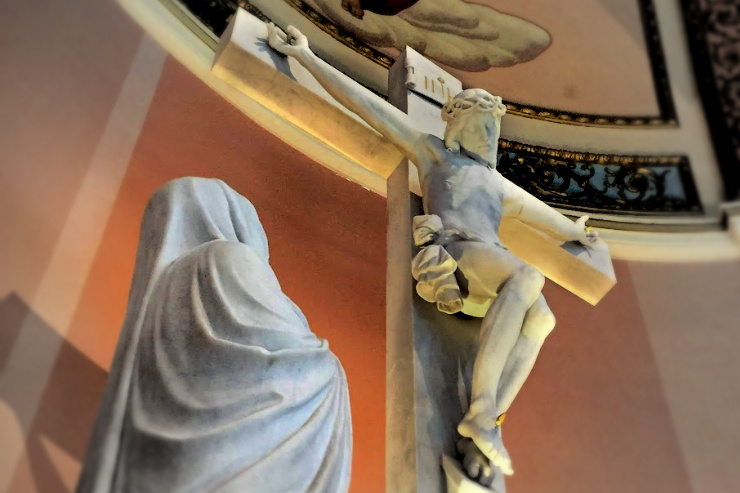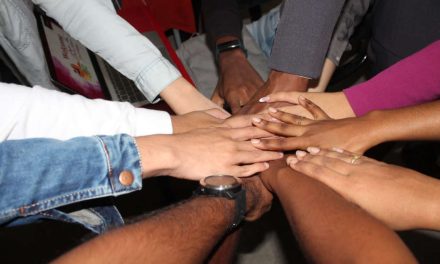
Photo by Michael Olsen on Unsplash
“Do I love my enemies enough to accept God forgives them?”
I still remember when I realized why the prophet Jonah tried to avoid going to Nineveh. Perhaps that seems ridiculous to you, because the answer is pretty obvious when you actually read the book of Jonah. But for years, I apparently had just heard the story told or read picture books about Jonah and the whale. I assumed Jonah did not want to go to Nineveh because he was scared and feared the task of preaching to the Ninevites.
We hear part of his story in this Sunday’s first reading. The portion chosen for the reading is after the drama with the whale, and Jonah appears fairly obedient to the Lord. The Lord calls him, he answers, and the Ninevites repent.
The whole story is slightly more complicated. It also is not what I presumed as a child. Jonah doesn’t flee the Lord’s call in the first chapter because he fears the mission. He flees because he fears the mission will be successful. He does not want the Ninevites to repent and be spared.
The next verse after this Sunday’s passage reveals that the sparing of the Ninevites “greatly displeased Jonah, and he became angry. He prayed to the Lord, ‘O Lord, is this not what I said while I was still in my own country? This is why I fled at first toward Tarshish. I knew that you are a gracious and merciful God, slow to anger, abounding in kindness, repenting of punishment’” (Jonah 4:1-2).
The Ninevites were ancient enemies of God’s Chosen People. Nineveh was the capital city of Assyria, which took the Northern Kingdom into exile. Maybe if the capital city of the enemy was destroyed, the Israelites could return home? If the Chosen People were really God’s favorite, should He not will the extinction of their enemies?
Jonah is angry because he is successful in his mission. God spares the Ninevites. Jonah is so angered by the mercy of God, he prays for death! In the fourth chapter, he throws a bit of a tantrum. After the Lord gives him a plant to shade him in the heat, he sits happily, watching to see if the city will be destroyed. But after the Lord kills the plant, Jonah gets angry again and says he is “angry enough to die.” The comparison of his anger over the death of a plant and his lack of concern about the lives of thousands of people seems pretty ridiculous.
Perhaps its easy to look at Jonah and think, “Wow, I would never be that hard-headed or hard-hearted.” But like most Scripture stories, it is easy to judge Jonah if we remain an observer of a nice story. It is much harder when those same concepts hit closer to home in our own lives.
The story of Jonah is replayed in our own time and in our own lives. No, God does not ask us to walk through a large city crying a message of repentance. Nor, perhaps, are our Ninevites and shade plants as clearly defined. But they are there.
What does it actually mean to love our enemies? It is not enough to simply state the fact. We have to truly love them.
When someone hurts us, do we want revenge? Do we want to see them suffer? Or do we want what is best for their souls?
The Assyrians slaughtered Israelites and made them slaves, far from their homes. They were ruthless and cruel. Wasn’t it natural for Jonah to want their capital destroyed? Nineveh was synonymous with everything evil. It makes no sense to the human mind that God would have mercy on them. In His justice, He should smite them!
Do we begrudge the generous mercy of God?
Earlier this week, I read comment after comment on social media that rejected the idea of praying for our new President. Have we drawn such divisive lines that we reject even the power of prayer? Have I decided ahead of time who is worthy of a walk through Nineveh?
Again and again, I look at the lessons of Scripture and find them hard when I actually have to apply them to my life. I am okay with God having mercy on Biblical characters, and it’s okay with Jesus to eat with tax collectors and prostitutes. But apply that here and now, to my situation and life? That’s much harder.
As petty as Jonah looks at the end of the story, I am probably more like him than I would like to admit. I decide who I want God to bless and who I want Him to punish. I rely on His mercy when I sin, but point fingers at others when they sin.
God can be merciful to me; He can be slow to anger with me and with my family and with those who agree with me. He can be abounding in mercy towards those who agree with me, those who think like me, and those who look like me. But those who hurt me? Who disagree with me? Who aren’t like me? They deserve God’s justice!
Do I love my enemies enough to accept God forgives them? Can I accept the possibility of repentance and want what is best for their souls? Do I make room in my life for the possibly of change and compassion? Or do I sit in judgment, wanting to draw a line between “me” and “them”?
It’s a good examination of conscience for us. Not in a generic way, but rather really looking at precise situations and relationships in my own life. Am I like Jonah, sitting on a hillside anxiously awaiting the death of my enemies? Or am I like Jesus, praying for the salvation of my enemies even while I suffer at their hands?
Please help spread the Gospel! Share this article on Facebook and other social media.

Please help us continue our mission!
We welcome both one-time and monthly donations. A monthly subscriber giving just $10 a month will help cover the cost of operating Integrated Catholic Life for one day! Please help us bring enriching and inspiring Catholic content to readers around the world by giving today.
Thank you and may God Bless you for supporting the work of Integrated Catholic Life! Integrated Catholic Life Inc is a nonprofit public charity under Internal Revenue Code Section 501(c)(3). These contributions are tax-deductible as provided under U.S. tax laws.














